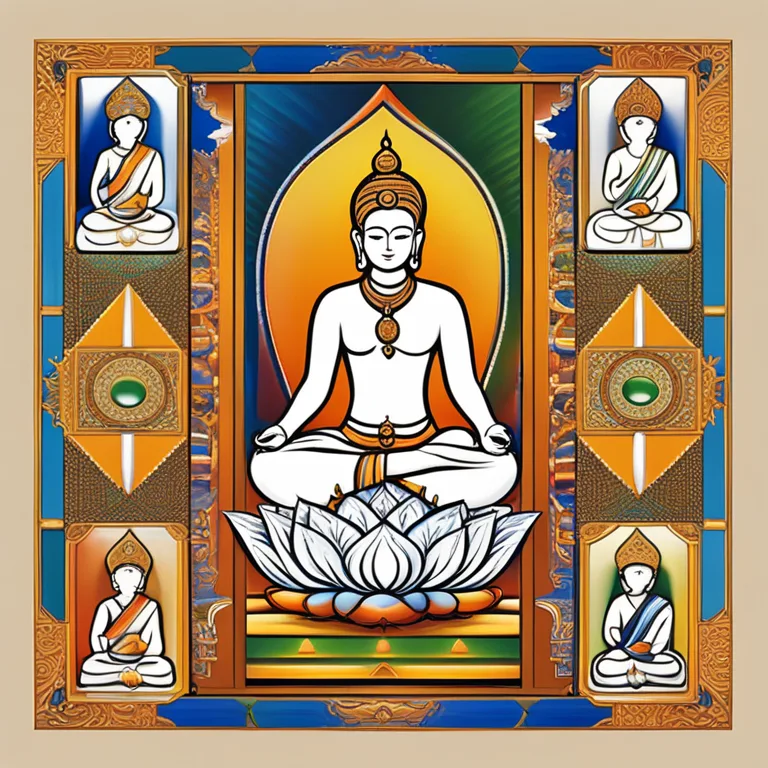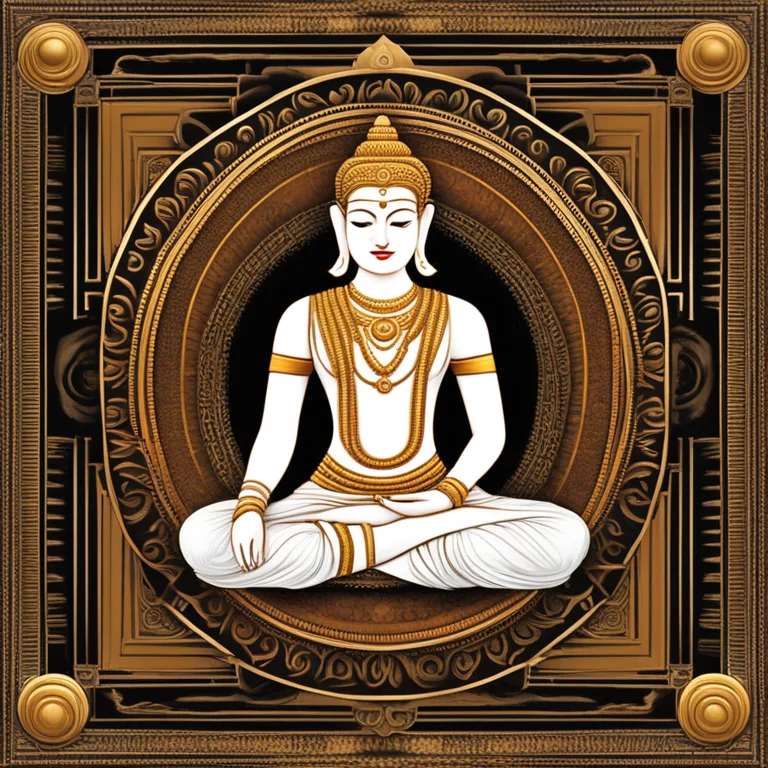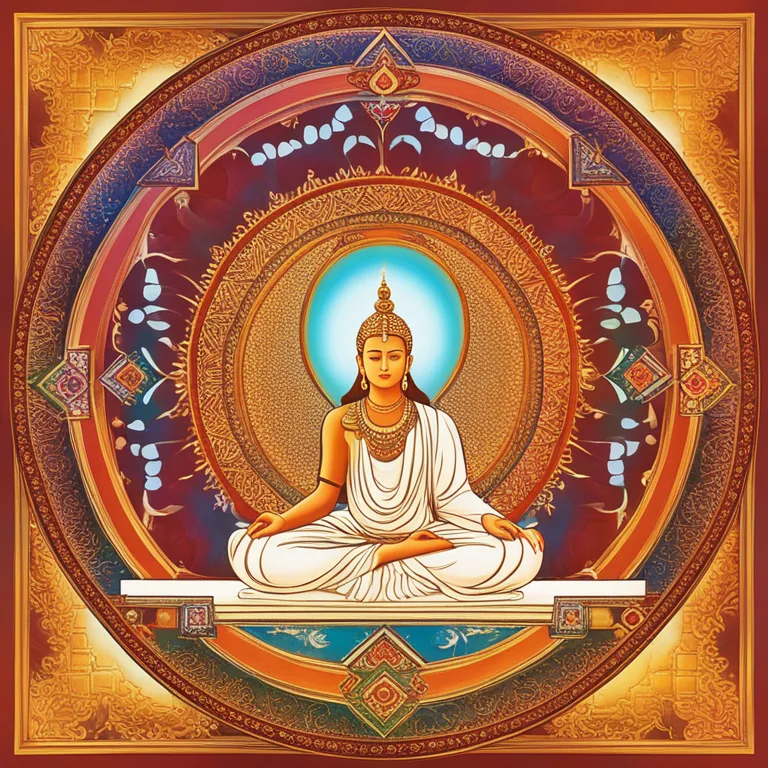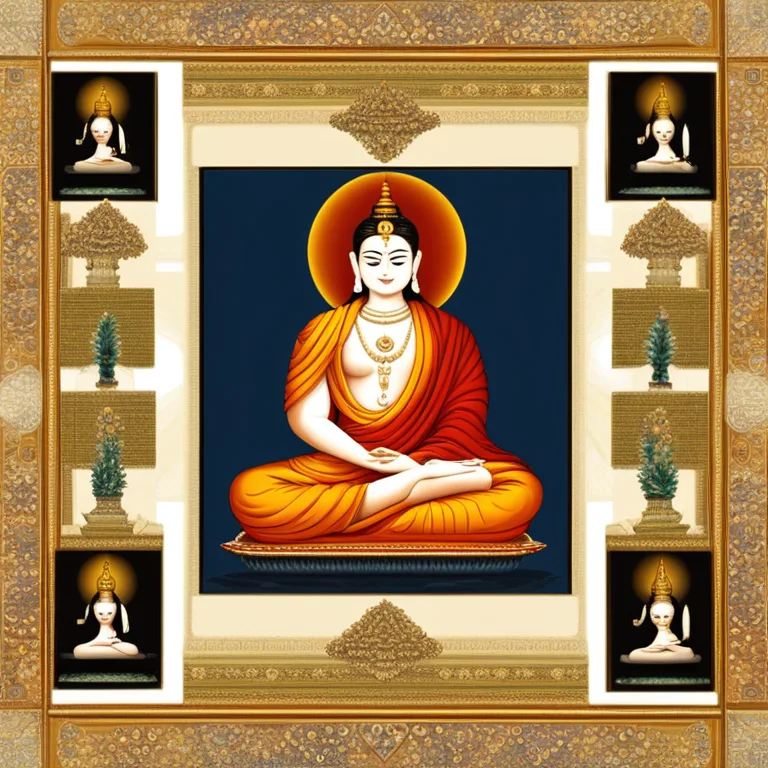
Jain Meditation: Pathways to Inner Peace
Gain insights into Jain meditation practices for achieving tranquility and self-awareness.
article by Hina Kurosawa
In the realm of spiritual disciplines, Jain meditation, also known as "Dhyana," stands as a testament to the pursuit of inner peace and self-realization. Rooted in the ancient Jain tradition, these techniques are designed to lead practitioners towards a life of non-violence, truth, and renunciation. As we embark on this exploration of Jain meditation practices, it's essential to understand that they encompass more than just a means for relaxation; they are tools for cultivating a profound respect for all forms of life and for facilitating the separation of the self from the material world.

Before delving into the specifics of Jain meditation, adherents must prepare themselves physically and mentally. This involves adopting a lifestyle aligned with the Jain ethical framework, which includes non-violence (Ahimsa), truthfulness (Satya), non-stealing (Achaurya or Asteya), chastity (Brahmacharya), and non-possessiveness (Aparigraha). Additionally, Jains often follow a vegetarian or vegan diet, emphasizing the principle of non-harm towards animals. Preparatory practices also include Pratikraman, a process of introspection and confession, which purifies the mind for deeper meditative work.

'Samayika' denotes the practice of staying in the present, which is considered a cornerstone of Jain meditation. Typically performed at dawn, dusk, and noon, this practice encourages meditators to experience equanimity. Samayika involves contemplation that spans 48 minutes, symbolizing detachment from worldly concerns and the experience of the soul's true nature. During this time, practitioners seek to dissolve attachments and aversions, fostering an attitude of universal friendship and forgiveness.

At its core, Jain meditation involves four principal types: Artta Dhyana and Raudra Dhyana, which are discouraged as they involve harmful emotions; and Dharmya Dhyana and Shukla Dhyana, which are recommended. Dharmya Dhyana focuses on religious or virtuous subjects and aids in reducing passions and desires, while Shukla Dhyana facilitates the attainment of spiritual clarity and purity of mind. The latter is practiced by advanced meditators who can concentrate without interruption, eventually guiding them toward the ultimate goal of Jainism—liberation or Moksha.

In addition to contemplative focus, Jain meditation employs the use of mantras and visualization techniques. Mantras, such as the revered 'Navkar Mantra,' are chanted to invoke higher states of consciousness and purify thoughts. Visualization, on the other hand, often involves the mental image of a lotus flower at the heart or visualization of the Jina, a liberated soul as per Jain belief. These techniques aim to discipline the mind, enhance concentration, and aid in the aspirant's spiritual progress.
Jain meditation also involves 'Anupreksha,' the practice of deliberate contemplation on various truths such as the transitory nature of life, the importance of personal accountability, and the benefits of forgiveness. This analytical meditation enables practitioners to instill these truths deeply within their psyche, transforming their attitudes and behaviors to align with Jain principles and bringing forth an inner transformation crucial for their spiritual journey.
Today, with the growing interest in holistic and mindful living, Jain meditation practices have seen a resurgence. These age-old techniques are now being applied to contemporary life, providing a sanctuary from the incessant noise and distractions of the modern world. Professionals from various fields recognize the non-sectarian benefits of these methods, such as stress reduction, enhanced focus, and improved emotional well-being. As humanity grapples with ethical and environmental challenges, the Jain approach to meditation offers a perspective rich in compassion and reverence for life.
Published: 12/20/2023
Modified: 12/20/2023
More predictions
Come back here soon to learn more about yourself and your future


Vedic Meditation Simplified
Discover the ancient wisdom of Vedic meditation techniques for spiritual awakening and balance.


Learning About Meditation Techniques
Discover effective meditation methods to enhance your well-being and spiritual journey.


Five Unique Meditation Practices
Discover five innovative meditation techniques to enhance your spiritual journey and inner peace in this insightful article.